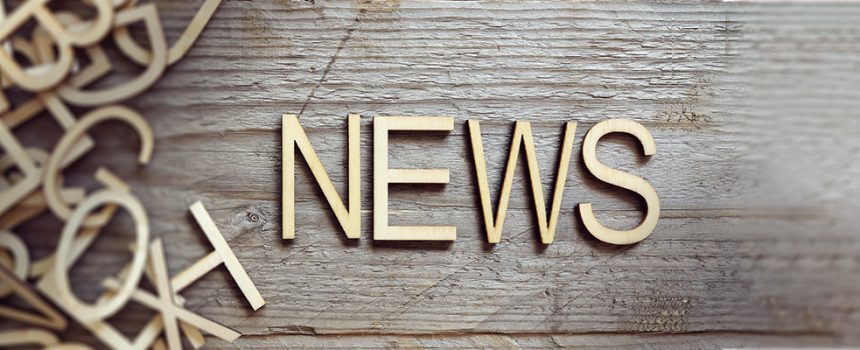Radio As a Marketing Tool For B2B Marketers and Social Listening
In the digital era, brands shouldn’t write off the radio as a marketing tool – it offers the same key perk of programmatic ad buys: attribution. Paul Brenner, President of Dial Report, the only first-party data attribution and listener intelligence platform measuring the performance of broadcast radio shares his insights on how radio can prove to be a valuable marketing tool for B2B sales.
Future of Radio Advertising in Promoting B2B Sales
Paul shares how radio as a marketing tool can be a powerful medium for promoting B2B sales and brand building. In his words, “B2B purchasers are consumers, too. And they behave the same way – they listen to the radio on the way to work, while they’re at work, while running errands, relaxing, while the game is on. In fact, 93% of Americans are tuned to radio each week, making Radio the #1 reach medium.” Besides this interesting figure from Nielsen’s second-quarter 2017 Comparable Metrics Report, Paul discussed the power of radio in shaping B2B sales:
“According to the Radio Advertising Bureau, 30% of FM radio listeners have a bachelor’s or graduate degree. It’s fair to say that radio listeners are making business decisions every day. And many of them own their own business. Many marketers are unaware of the insights available to help them reach target audiences through the radio.”
Paul cited the instance of how a web host provider reached out to Dial Report to understand how to approach their target audience of 35 to 55-year-olds business leaders living in specific markets. Paul and his team looked at different radio formats, days and dayparts and tied them to audience behaviors and location data to uncover which stations fit their target profile. This is just one of many successful cases of powering B2B sales through the radio.
Radio: Your Own Personal DJ
Radio advertising also compares more favorably to other mediums, promoting social listening. As Paul remarks, “Radio is the #1 reach medium in the US, and 100% of listening occurs live. This is a key distinction vs. other advertising channels. Listening to the radio is like having a personal DJ with you wherever you go. The pre-programmed nature of radio means you don’t have to make any listening decisions once you find a station you like.”
Sharing Content Via Radio or Digital?
Paul further iterates the role of radio in the present digital era:
“Radio requires a live audience and demands urgency for sharing and discussing content that you love (or love to hate), whether it’s through social media, text, or listening with other people at work, in the car, or wherever radio is being played. Advertisers like Geico, MetroPCS, and other top brands blanket the country with radio spots because of the medium’s ability to provide tremendous reach at a reasonable price, which is needed to gain pervasive brand awareness. It would be cost prohibitive to accomplish that level of reach through a one-to-one medium like digital.”
Role of Radio In the Marketing Mix
So, what’s the future of radio as a tool for marketing in the present digital era? While there have been cases of B2B marketers returning to radio, because digital did not deliver the reach needed to fill the sales pipeline, Paul believes “…the reality is that most brands need both digital and radio in their marketing mix to realize the most value with any advertising campaign. We recently worked with a specialty retailer who had decided to cut back on radio and heavy up on other media. Their sales suffered. When they came back to radio, they looked to us for measurement. We were able to show that 25% of the potential audience was exposed to the ad. And those exposed to their advertising were 3x more likely to visit a store brand location while the campaign was running. We also showed how radio honed in precisely on their target demographics through careful planning. Sales went up the month they went back to radio, and the brand is now back on the radio.”
Radio Killed the Video Star?
Radio can also deliver audience intelligence as granularly as digital. Paul discussed how Dial Report “..showed a telecom company that their radio campaign delivered a 19% exposure rate and an 8% conversion to in-store visits. They were also able to uncover some interesting demographic information about their store visitors. For instance, in the Detroit market, some of their visitors were hip-hop listeners: 24% of those who heard the ad earn upwards of $75,000; 54% have a least some college if not a 4-year degree or graduate degree. The brand is considering how they’ll retarget these audiences with additional services, or up-sell current services.”
Channeling Radio Advertising For B2B Businesses
How can businesses use radio as a medium to boost sales? Paul says “We see radio drive traffic to websites and brick-and-mortar stores. Some recent data shows average foot traffic lift ranging from 10% to 60%, with average lift in the 30 percentiles. So radio is boosting sales, without a doubt. And for a local B2B company, local radio is the place to be. Even with the ability to stream stations from anywhere, almost 90% of radio app listening still occurs in-market. People are looking for local solutions from local companies in their community”
Summing up, Paul lists three reasons to use radio advertising for B2B marketers:
1. To build stronger brand awareness
2. To more broadly reach their target buyers
3. Drive sales
He proves how radio can do all three, regardless of if the advertiser is targeting consumers or businesses.
Clearly, radio advertising has the potential to transform B2B sales. This is a game-changing marketing medium for powering B2B businesses to tap phenomenal growth and stay ahead of the curve.












Comments